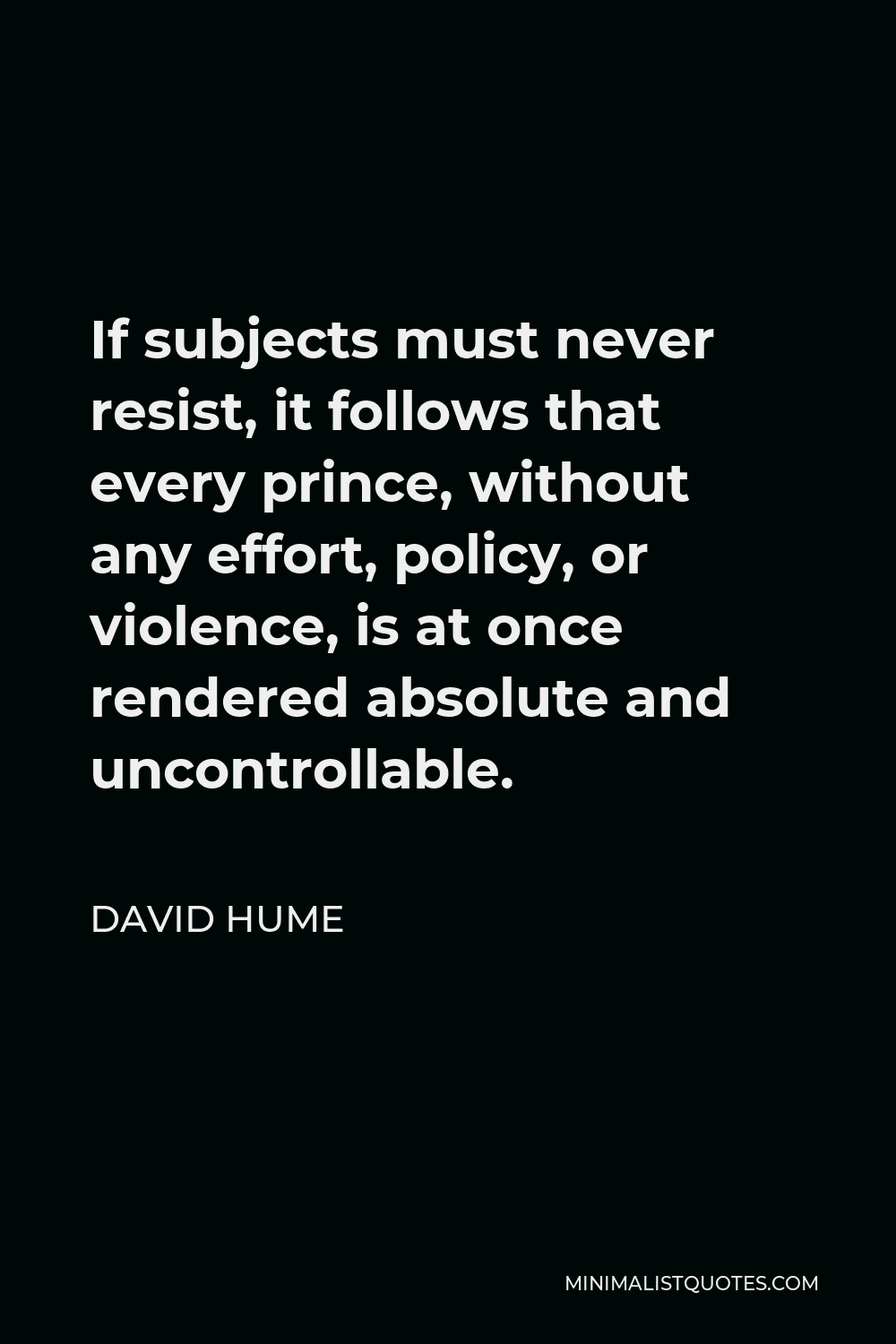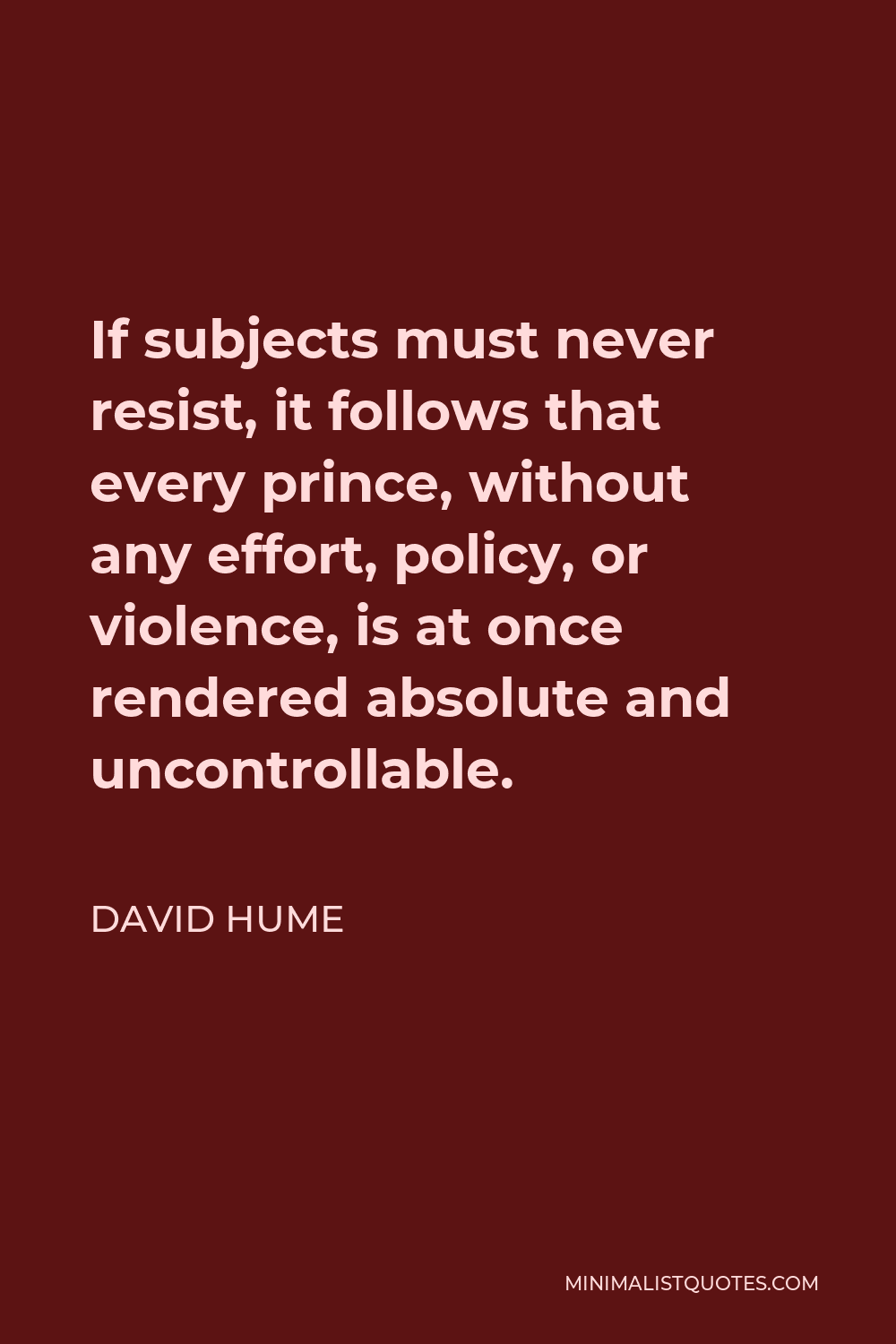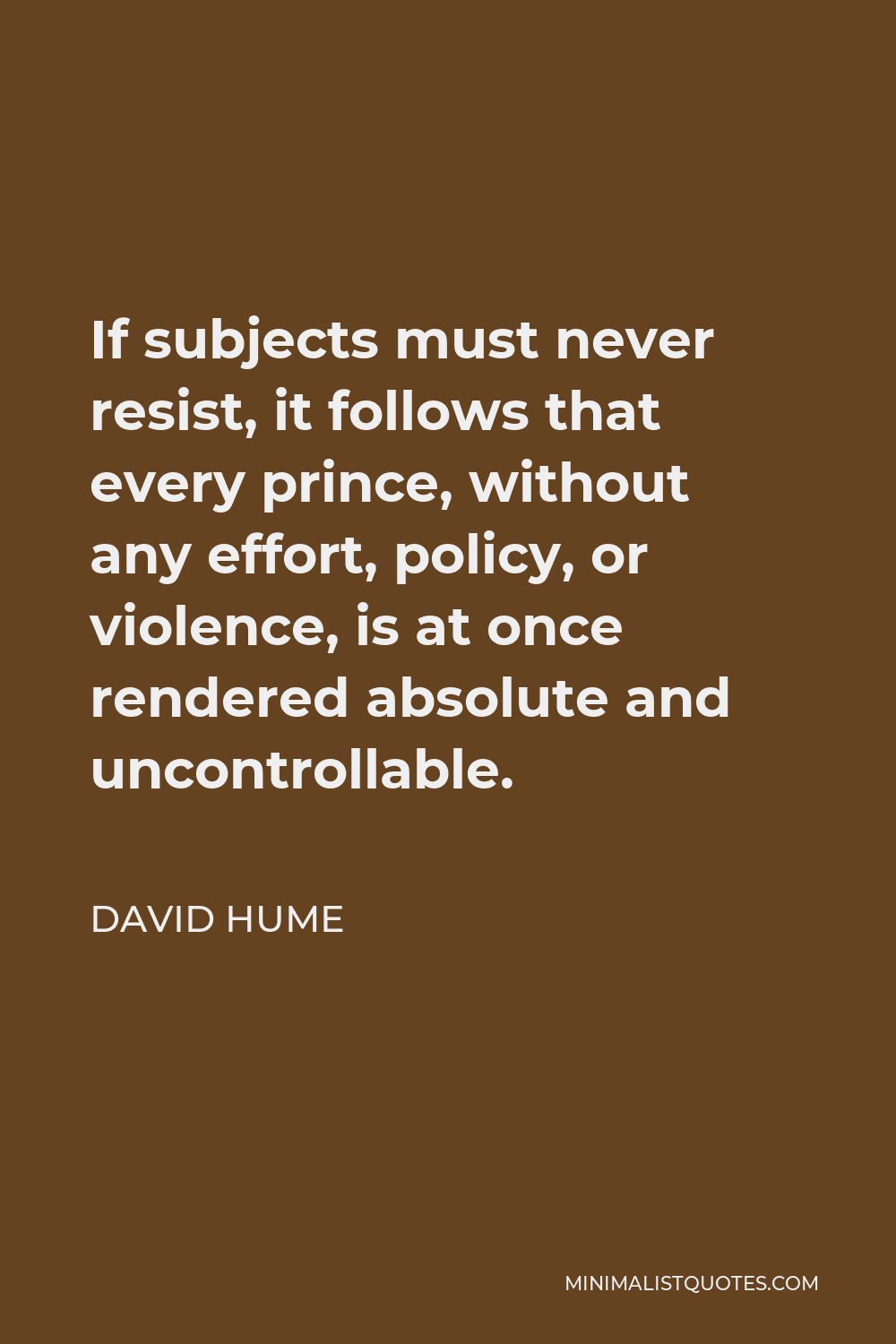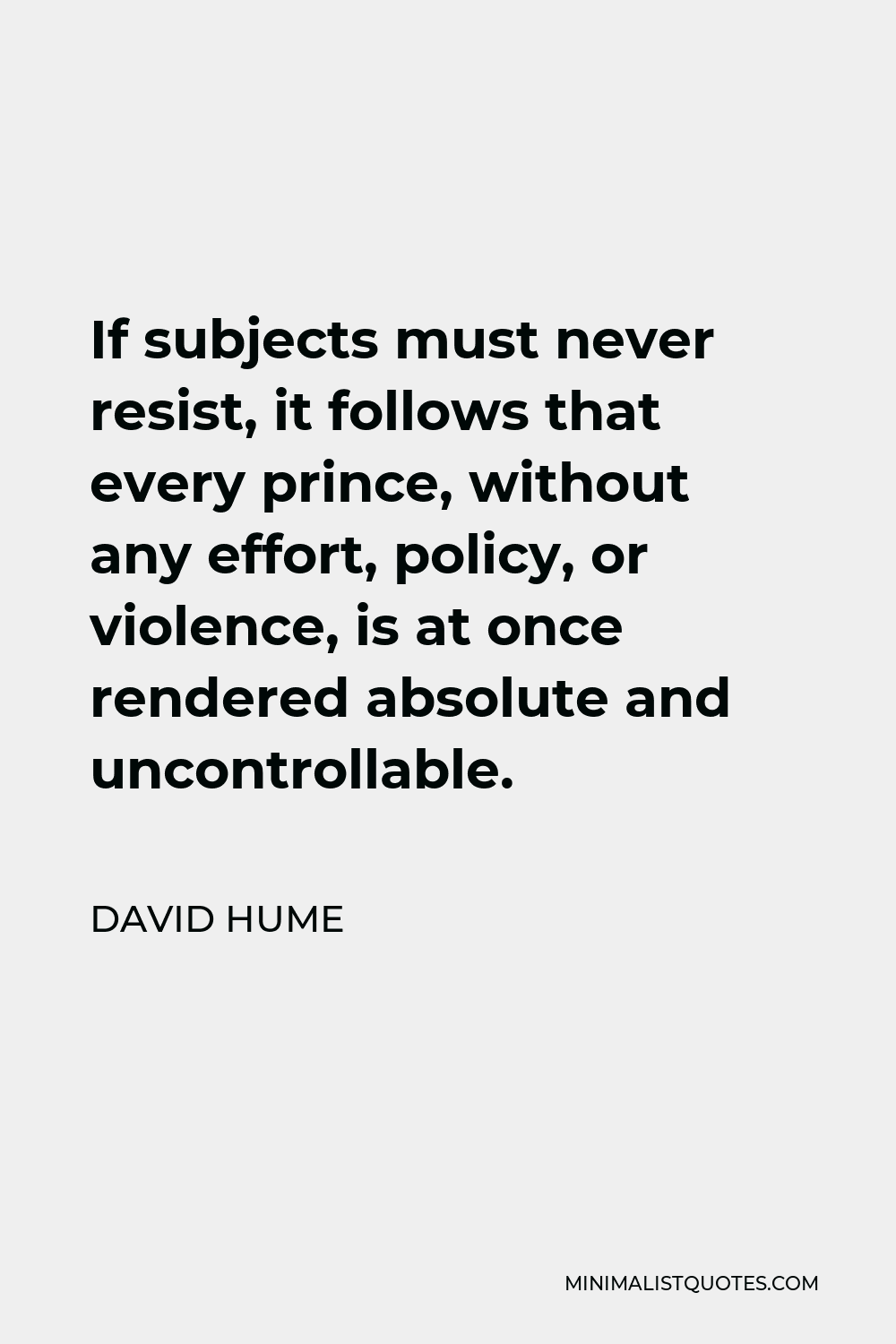I weigh the one miracle against the other and according to the superiority which I discover, I pronounce my decision.
DAVID HUMEIf subjects must never resist, it follows that every prince, without any effort, policy, or violence, is at once rendered absolute and uncontrollable.
More David Hume Quotes
-





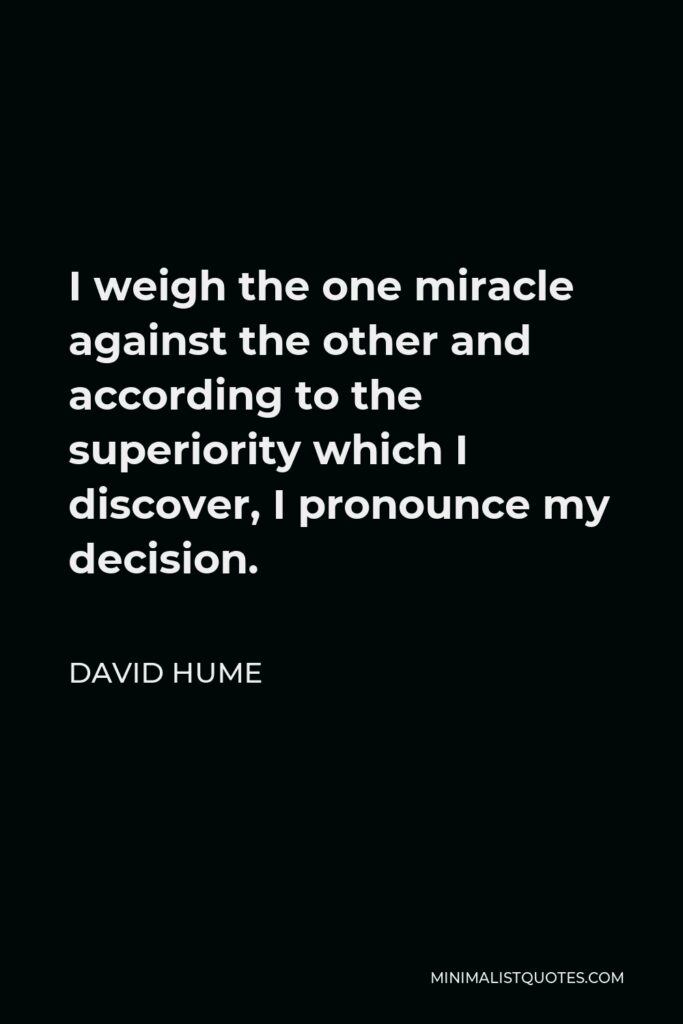

-





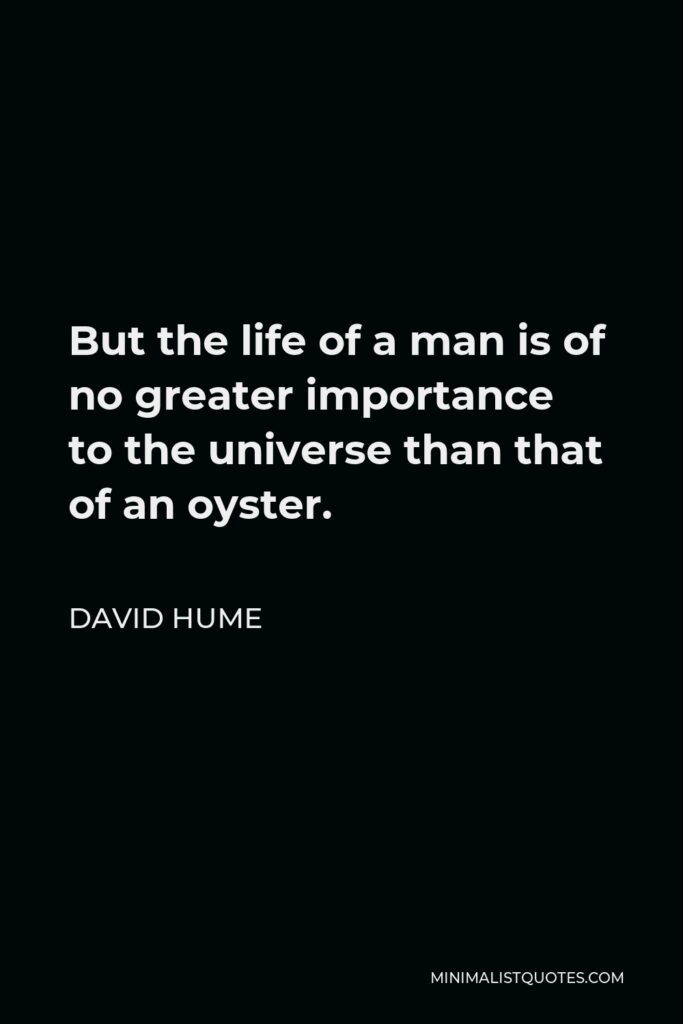

But the life of a man is of no greater importance to the universe than that of an oyster.
DAVID HUME -







The bigotry of theologians is a malady which seems almost incurable.
DAVID HUME -







I never knew anyone, that examined and deliberated about nonsense, who did not believe it before the end of his enquiries.
DAVID HUME -







When men are most sure and arrogant they are commonly most mistaken, giving views to passion without that proper deliberation which alone can secure them from the grossest absurdities.
DAVID HUME -





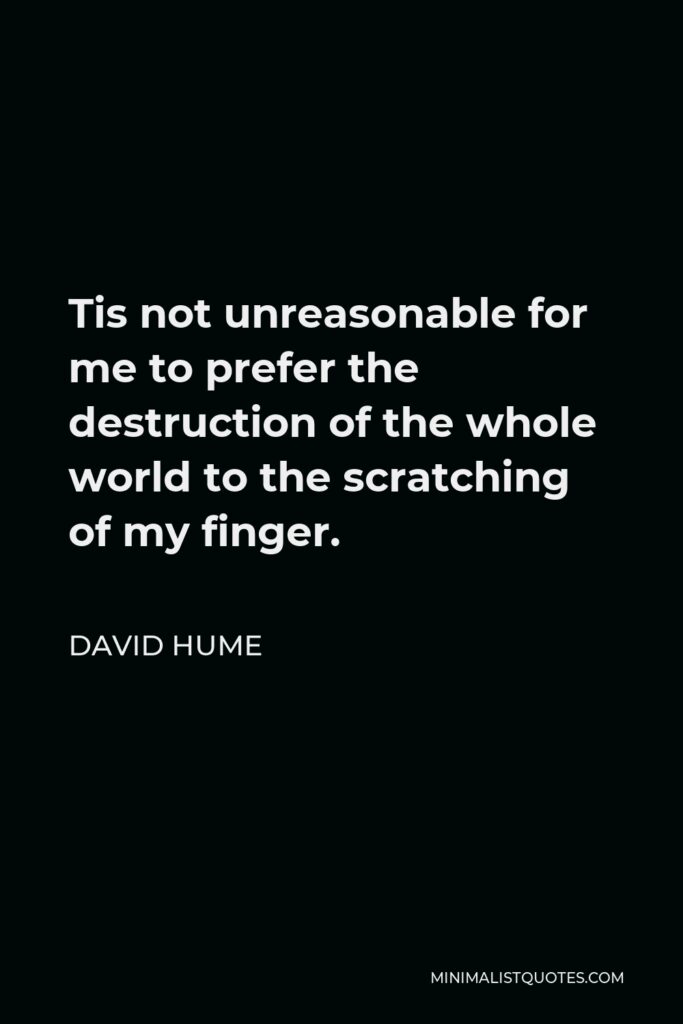

Tis not unreasonable for me to prefer the destruction of the whole world to the scratching of my finger.
DAVID HUME -





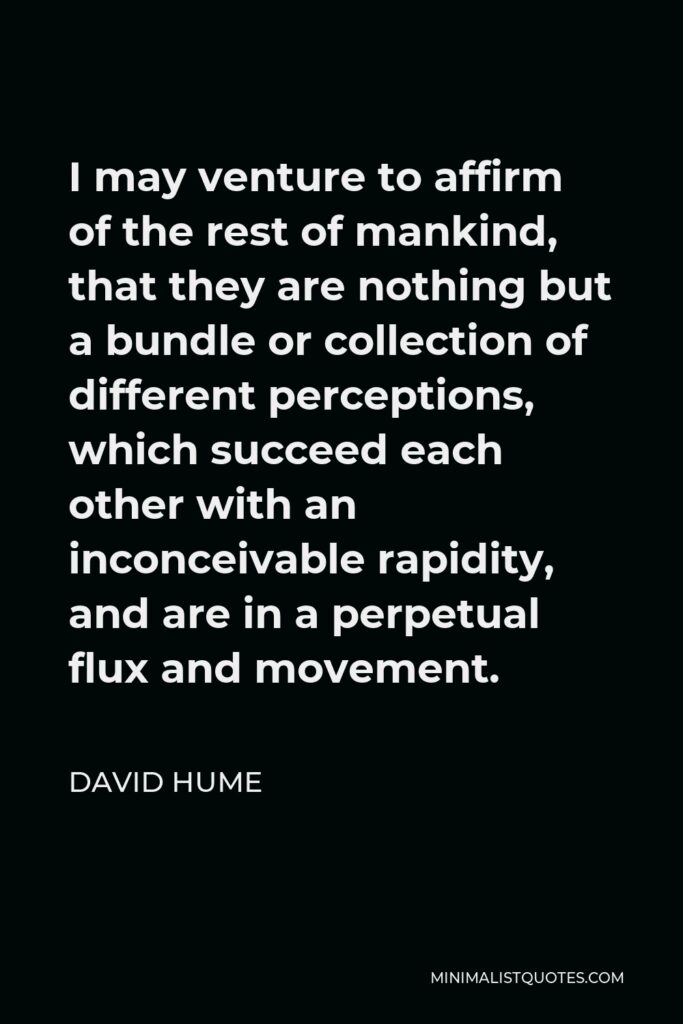

I may venture to affirm of the rest of mankind, that they are nothing but a bundle or collection of different perceptions, which succeed each other with an inconceivable rapidity, and are in a perpetual flux and movement.
DAVID HUME -





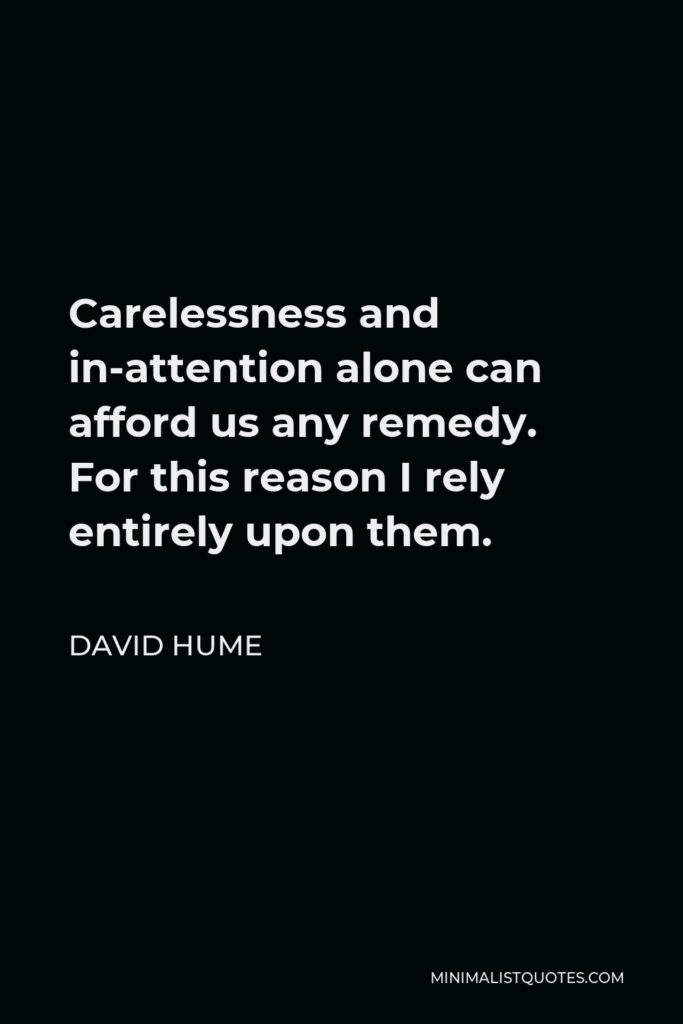

Carelessness and in-attention alone can afford us any remedy. For this reason I rely entirely upon them.
DAVID HUME -





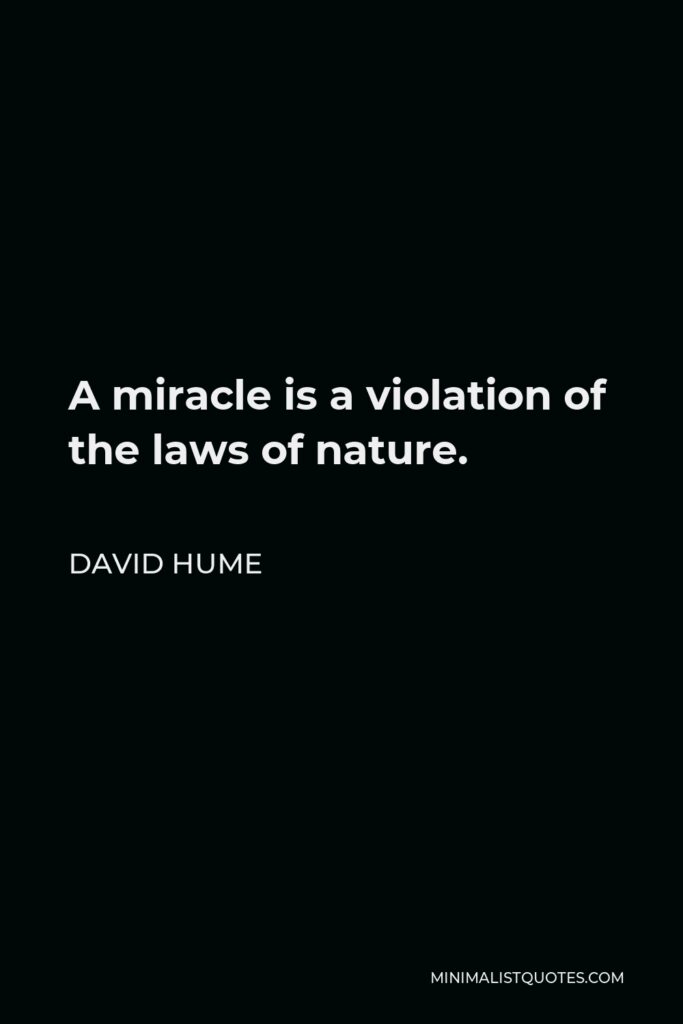

A miracle is a violation of the laws of nature.
DAVID HUME -





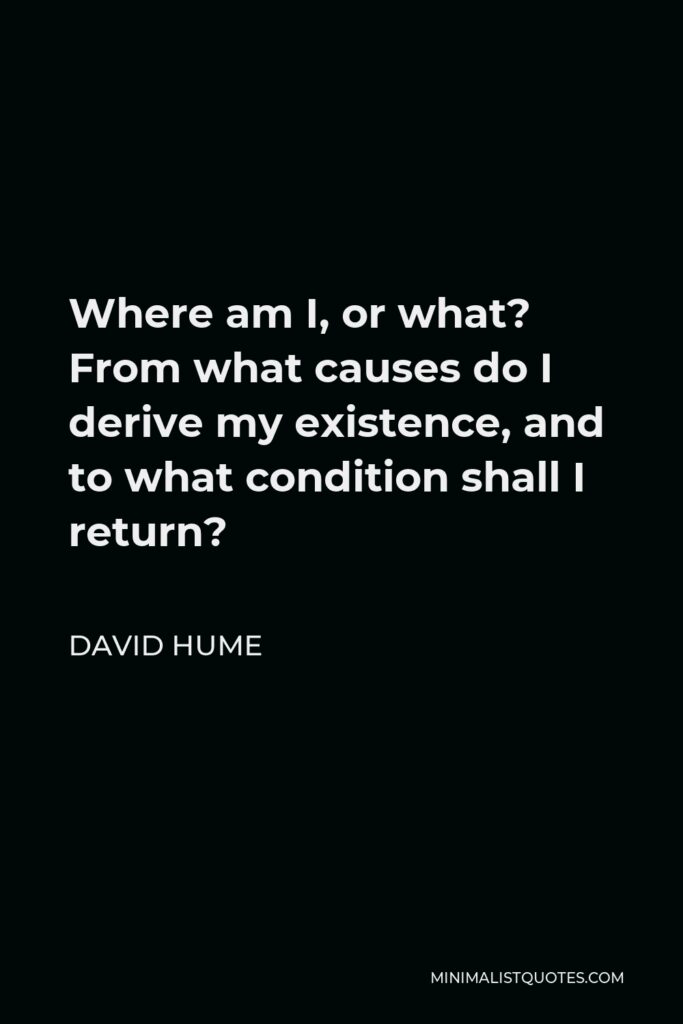

Where am I, or what? From what causes do I derive my existence, and to what condition shall I return?
DAVID HUME -





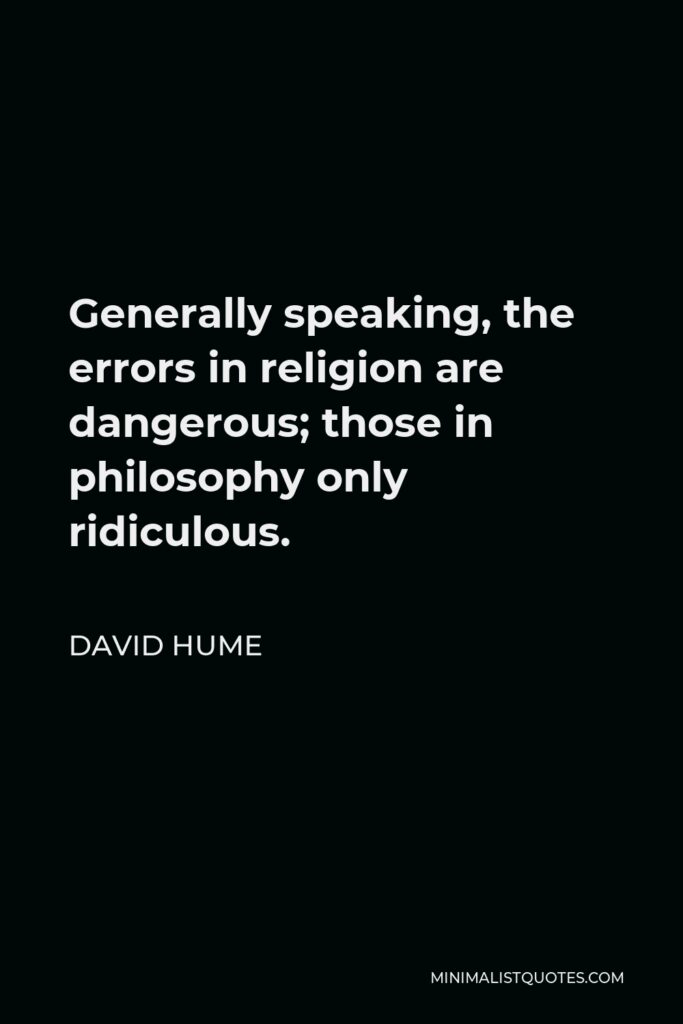

Generally speaking, the errors in religion are dangerous; those in philosophy only ridiculous.
DAVID HUME -





![David Hume Quote - The fact that different cultures have different practices no more refutes [moral] objectivism than the fact that water flows in different directions in different places refutes the law of gravity.](https://minimalistquotes.com/wp-content/uploads/2021/05/the-fact-that-different-cultures-have-different-pr-683x1024.jpg)

The fact that different cultures have different practices no more refutes [moral] objectivism than the fact that water flows in different directions in different places refutes the law of gravity.
DAVID HUME -





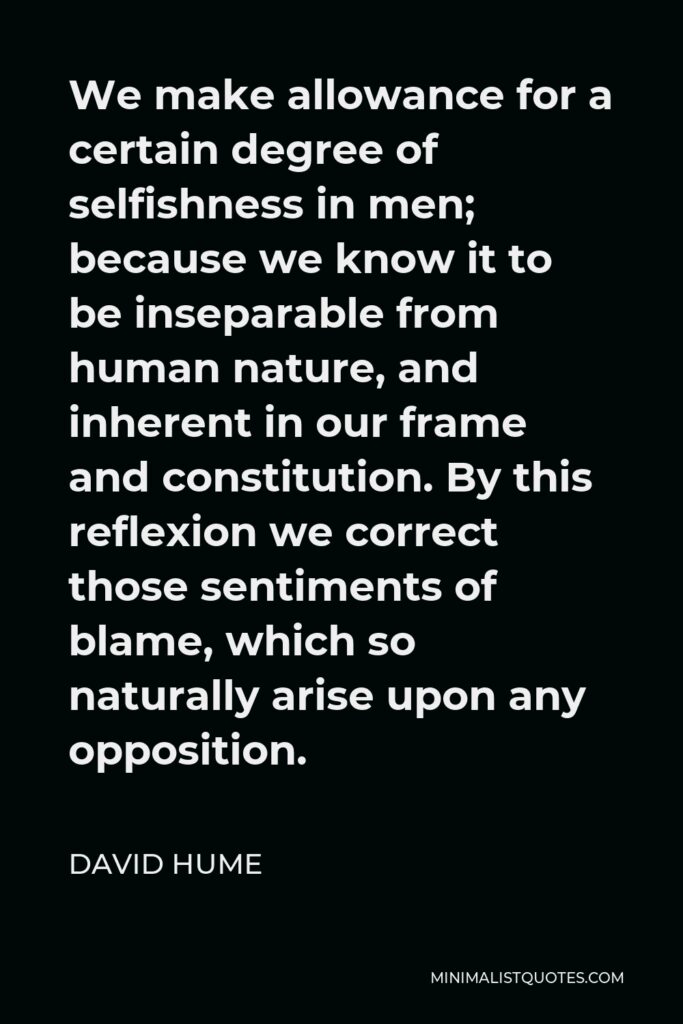

We make allowance for a certain degree of selfishness in men; because we know it to be inseparable from human nature, and inherent in our frame and constitution. By this reflexion we correct those sentiments of blame, which so naturally arise upon any opposition.
DAVID HUME -







To be a philosophical Sceptic is the first and most essential step towards being a sound, believing Christian.
DAVID HUME -





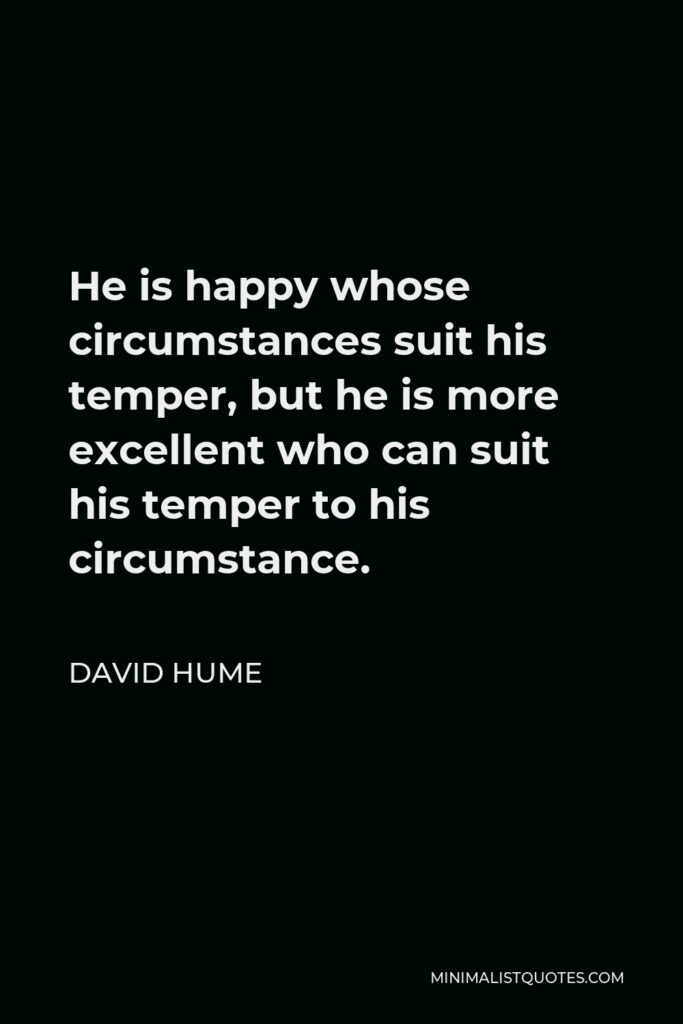

He is happy whose circumstances suit his temper, but he is more excellent who can suit his temper to his circumstance.
DAVID HUME -





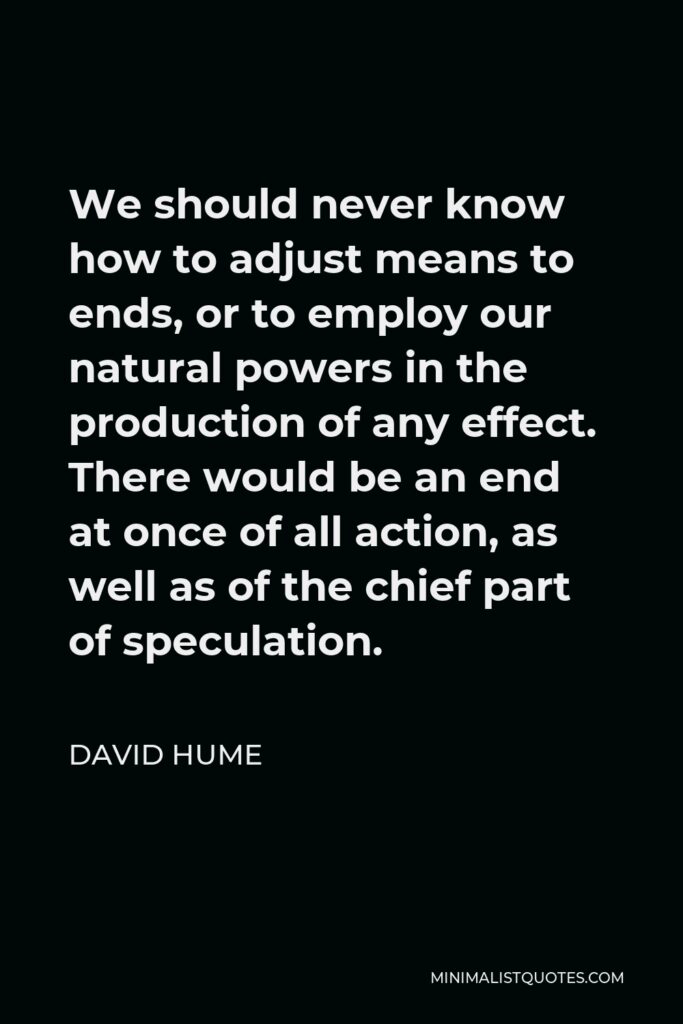

We should never know how to adjust means to ends, or to employ our natural powers in the production of any effect. There would be an end at once of all action, as well as of the chief part of speculation.
DAVID HUME
